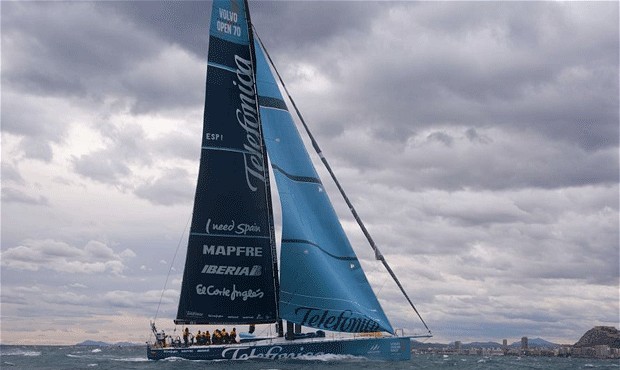Following the completion of E-Plus deal with Telefonica in Germany, which received the European Commission approval with conditions, Deutsche Telekom today demanded Telefonica to give up additional spectrum.
Incidentally, Telefonica’s O2 would cut the number of mobile operators from four to three, while pushing incumbent Deutsche Telekom down into second place and Vodafone into third.
Niek Jan van Damme, member of the Board of Management Deutsche Telekom AG for Germany managing director Telekom Deutschland GmbH, said: “The merger has generated an imbalance at frequencies above 1 GHz. Telefonica would have access to more than 60 percent of total resources in the 1800 MHz and 2.1 GHz range (UMTS band). This calls for an urgent intervention by the Federal Network Agency. At least 2×15 MHz in the 1800 MHz range and 2×15 MHz in the 2.1 GHz range should be relinquished.”
He said another problem is that these regulations give an unequivocal advantage to providers who don’t have their own network infrastructure – and that sends the wrong signal entirely.
“The focus of the competition authorities should not be on strengthening providers without their own infrastructure, but on promoting the network expansion. Our society is continually becoming more digitized and connected, and the necessary infrastructure to support this expansion needs to be built. Marketing existing network capacities will not be sufficient,” said Deutsche Telekom.
Deutsche Telekom today said it made preparations to position itself against stronger competitors in Germany.
“We have launched the Telekom Deutschland 2018 initiative to make sure we remain number one in the future. This is how we intend to simplify our product portfolio and processes radically, improve our network and services further as well as merge mobile communications, the fixed network and television,” said Deutsche Telekom.
James Robinson, Telecoms regulation analyst at Ovum, said: “O2 is looking to cement its position in a key European market, having recently bowed out of the Czech Republic and Ireland, and this deal would establish it as a new mobile market leader.”
EC conditions
EC has approved the deal with conditions.
Entry or expansion of one or several MVNOs: O2 must sell, before the acquisition is complete, up to 30 percent of the merged entity’s capacity to one or several (up to three) MVNOs in Germany at fixed payments.
Spectrum divestment to a new MNO or MVNO – the latter having taken up network capacity thanks to the first commitment.
Extension of wholesale agreements with partners of O2 and E-Plus, plus offering wholesale 4G services to interested players in the future. This will also improve the position of German MVNOs and service providers to whom the two operators grant wholesale access by providing planning security for 2G and 3G.
GSMA welcomes
Telecom industry association GSMA said while the decision to allow the merger in Germany to go ahead is welcomed, efforts should be redoubled to reduce constraints on market driven restructuring. A streamlined merger review process and reduced remedies are essential. This change can only be achieved by a comprehensive review of Europe’s antitrust framework.
Anne Bouverot, director general, GSMA, said: “Market fragmentation prevents Europe’s network investors from capturing the economies of scale and scope that, for example, America’s two largest carriers have access to – each of which is larger than the three biggest European carriers, combined.”
Baburajan K






